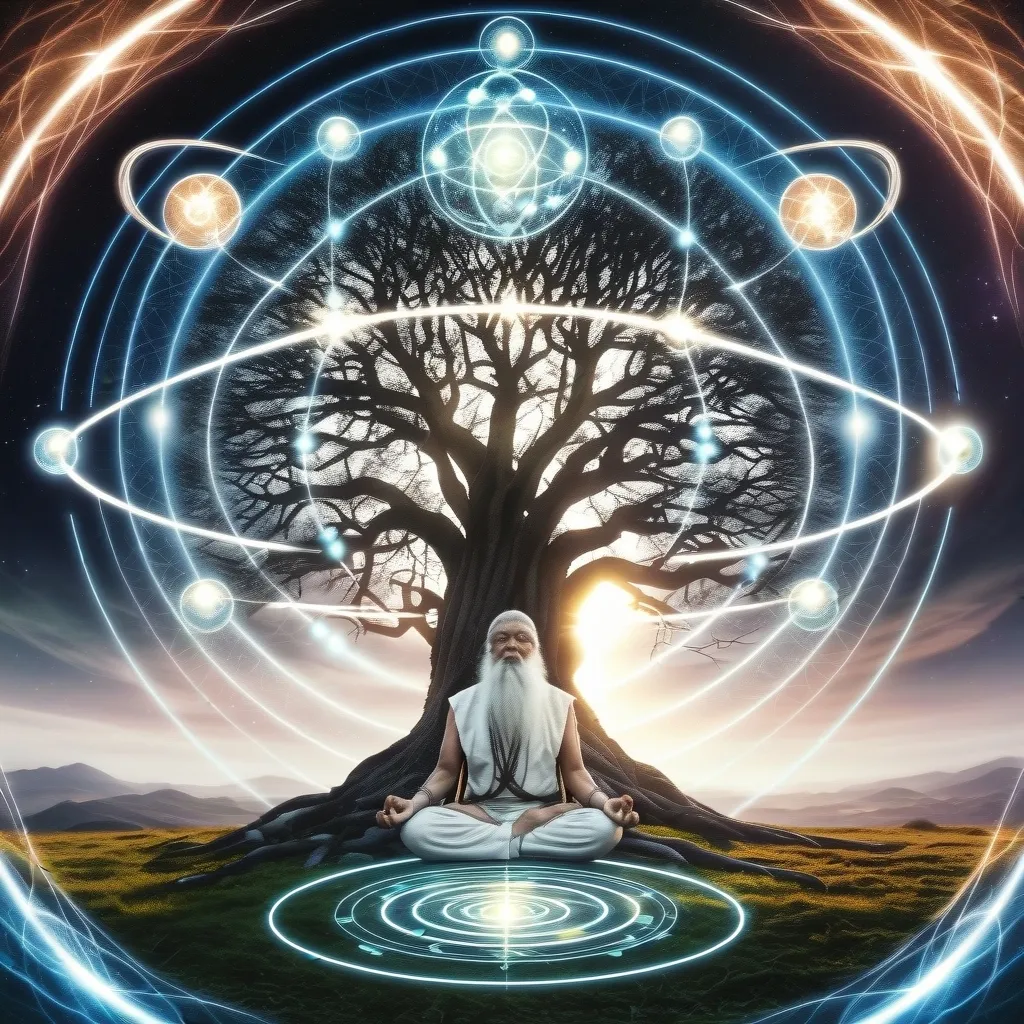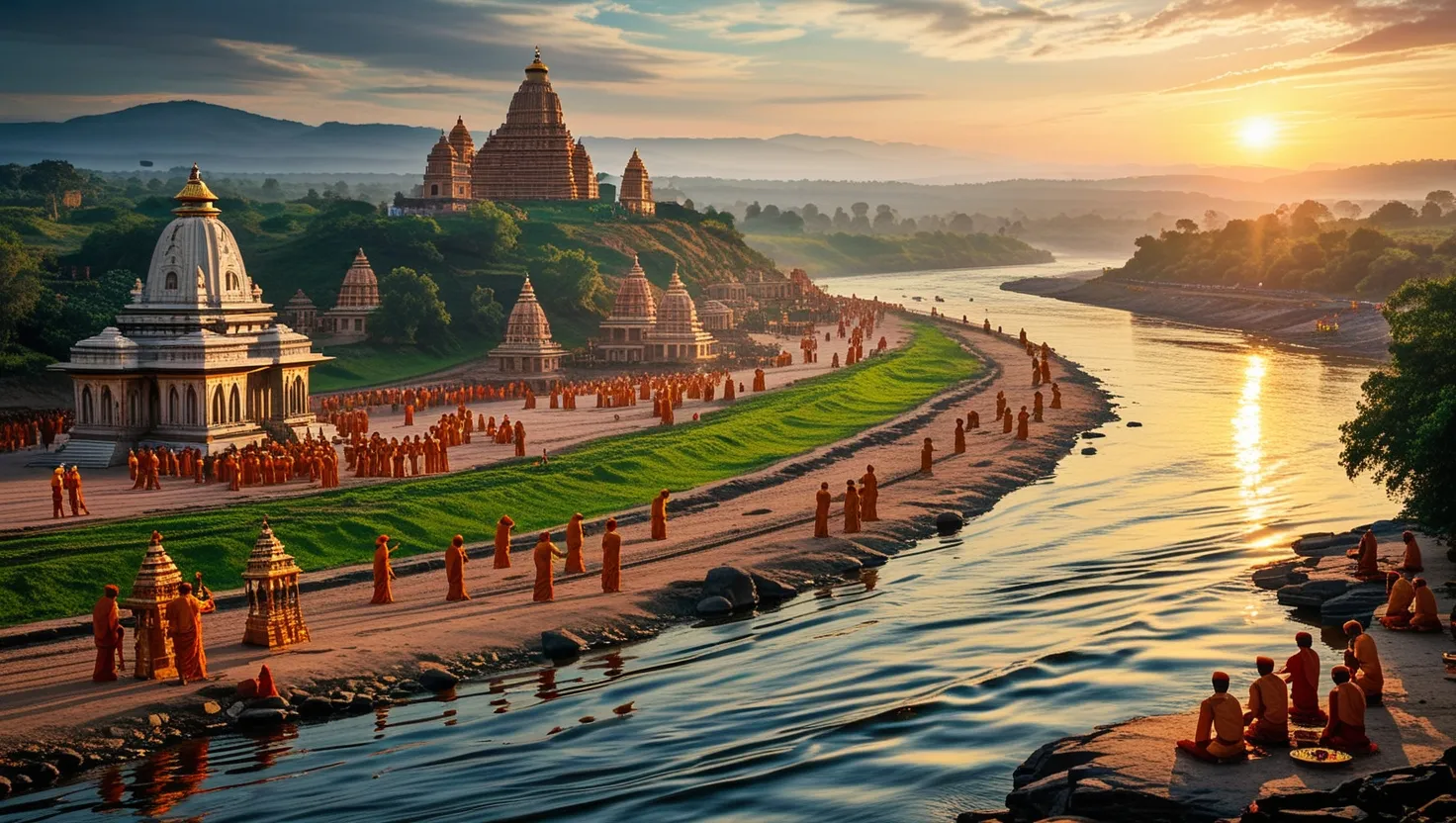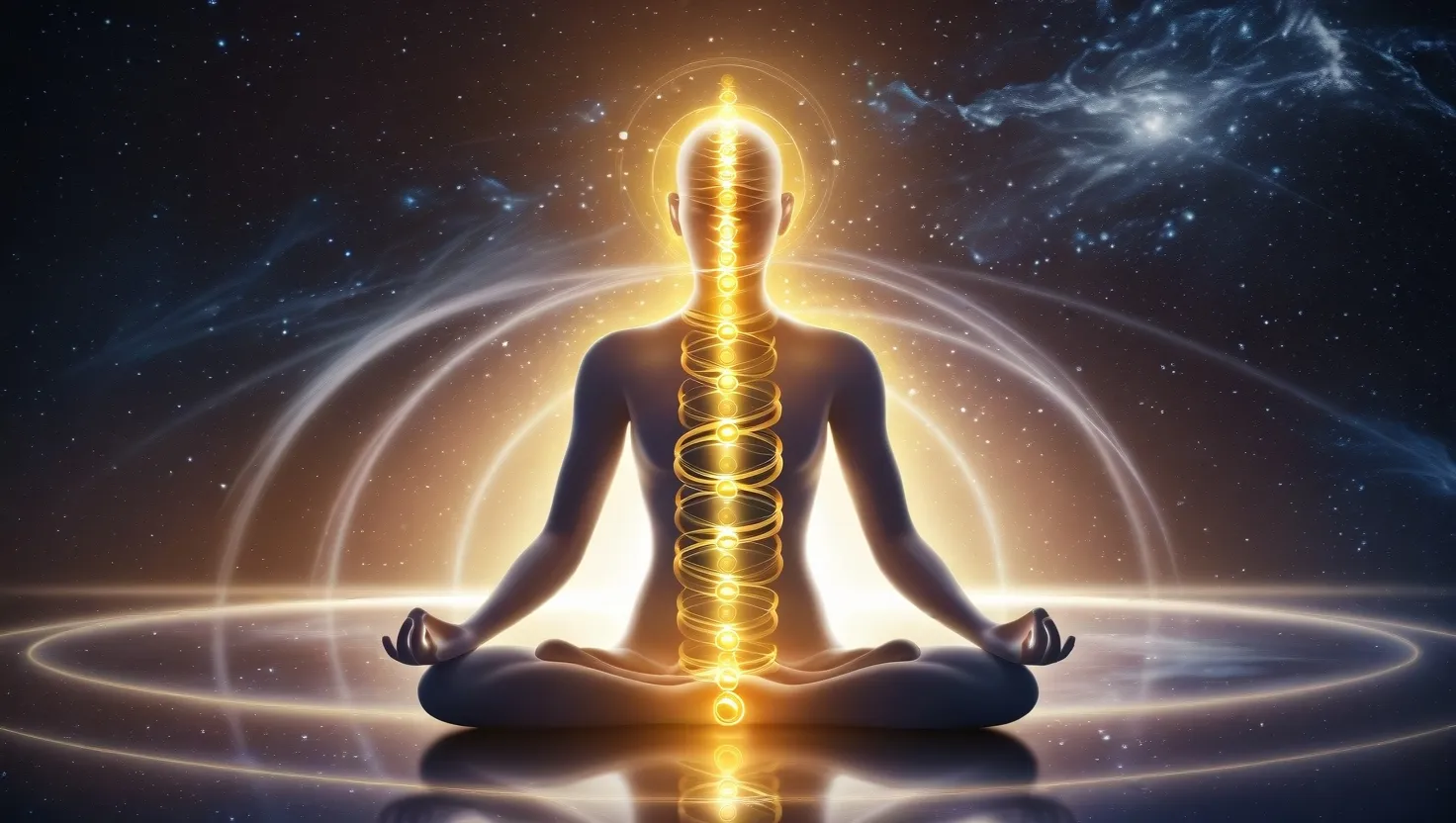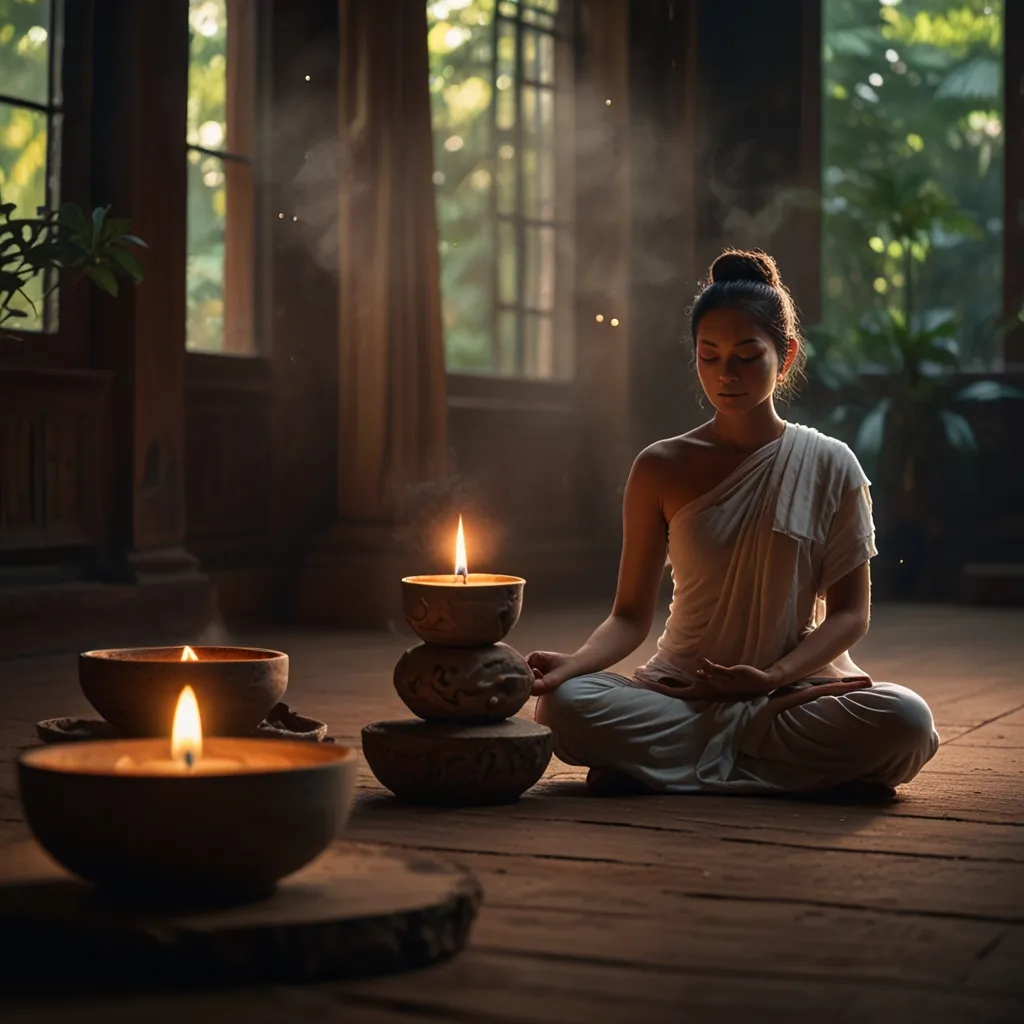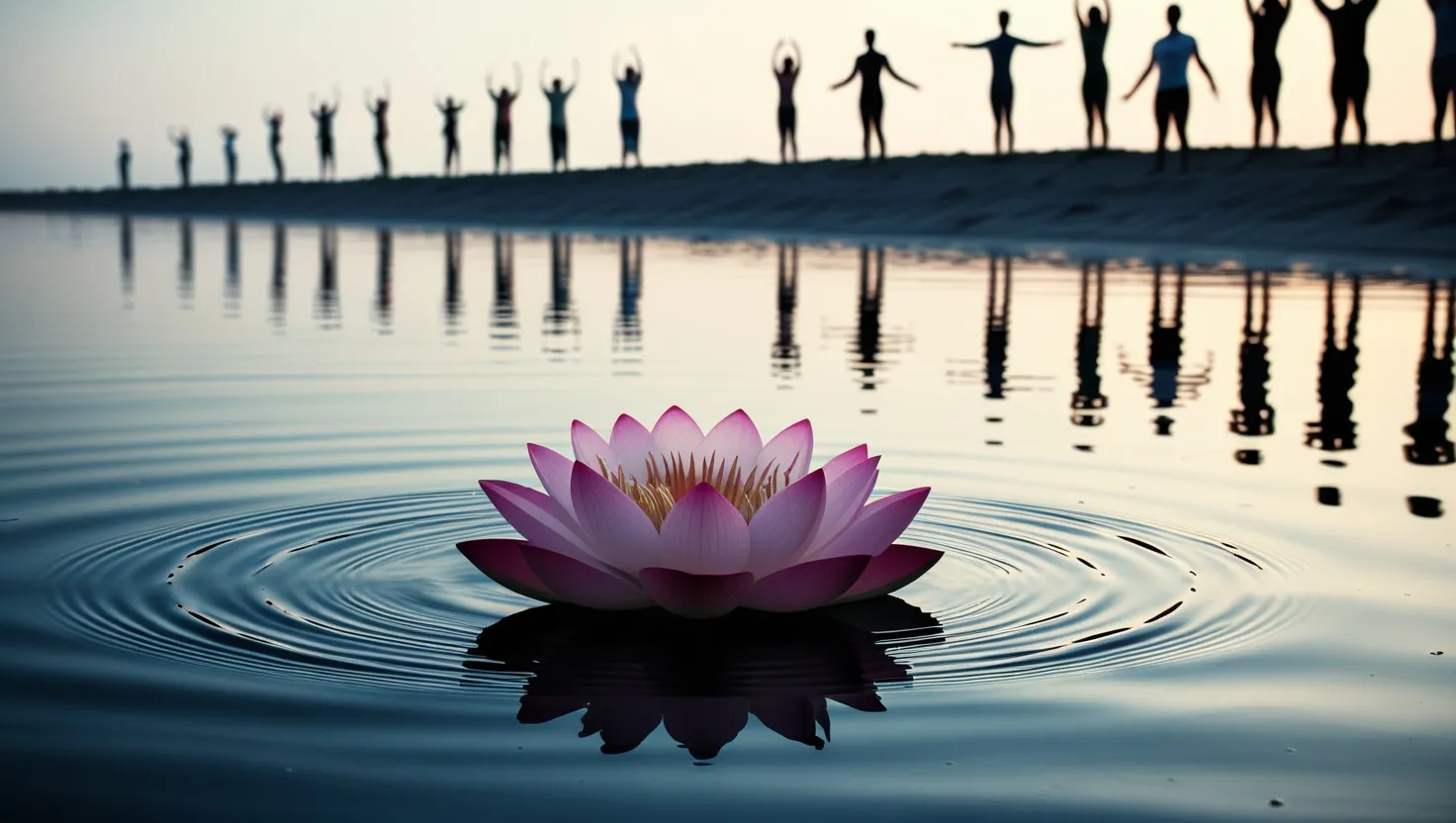Hey there! Let’s dive into the fascinating world of the Upanishads, those ancient Hindu texts that are like a treasure chest of wisdom. Trust me, you don’t want to miss out on what these bad boys have to offer.
Picture this: you’re on a quest for the meaning of life, trying to figure out who you really are and what this crazy universe is all about. Well, the Upanishads have got your back. They’re like that wise old friend who’s seen it all and is ready to drop some serious knowledge bombs on you.
So, what’s the big deal about these texts? For starters, they’re the cream of the crop when it comes to Hindu philosophy. We’re talking deep, mind-bending stuff that’ll make you question everything you thought you knew. But don’t worry, it’s not all doom and gloom – these teachings are actually super relevant to our modern lives.
Let’s break it down a bit. The Upanishads are all about exploring the nature of reality. They introduce us to some pretty heavy concepts like Brahman and Atman. Brahman is like the ultimate reality, the source of everything that exists. And Atman? That’s you, your true self. But here’s the kicker – according to the Upanishads, Brahman and Atman are actually one and the same. Mind. Blown.
Now, you might be thinking, “Cool story, bro, but what does that have to do with me?” Well, this idea is actually pretty empowering. It suggests that we’re all connected to this universal reality. It’s like we’re all waves in the same ocean, unique but part of something much bigger.
But the Upanishads aren’t just about lofty philosophical ideas. They’re also super practical. They’re all about self-knowledge, encouraging us to look inward and really get to know ourselves. It’s like they’re saying, “Hey, you! Yeah, you! Stop scrolling through Instagram for a sec and take a good, hard look at yourself.”
This journey of self-discovery isn’t just some new-age mumbo jumbo. It’s about peeling back the layers of our ego and all the stuff we think defines us – our job, our possessions, our social media persona – and getting to the core of who we really are. And let me tell you, that’s some powerful stuff.
The Upanishads also tackle some other big concepts that are central to Hindu thought. Ever heard of karma? That’s the idea that every action has consequences. Or dharma? That’s all about our duty and responsibility in life. Then there’s samsara, the cycle of birth and rebirth, and moksha, which is breaking free from that cycle. Heavy stuff, right? But these concepts aren’t just abstract ideas – they’re like a roadmap for living a good life.
Now, you might be thinking, “This all sounds great, but isn’t it a bit outdated?” Nope, not at all. In fact, the Upanishads were way ahead of their time. They moved away from the whole ritual-heavy approach of earlier Hindu texts and focused more on personal reflection and understanding. It’s like they were the original self-help gurus.
And get this – the Upanishads aren’t just a big deal in India. They’ve influenced thinkers and writers all over the world. We’re talking big names like the German philosopher Arthur Schopenhauer and the American poet T.S. Eliot. These texts have crossed cultural boundaries and touched people from all walks of life.
But here’s the thing – reading the Upanishads isn’t just about gaining knowledge. It’s about transformation. These texts challenge us to question everything we think we know about ourselves and the world around us. They push us to ask the big questions: Who am I? What is this world? What’s the meaning of life? Heavy stuff, right? But trust me, grappling with these questions can lead to some serious personal growth.
In our fast-paced, always-connected world, the Upanishads offer a much-needed reminder to slow down and look inward. They teach us that true peace and happiness don’t come from external achievements or material possessions, but from understanding our true nature. It’s like they’re saying, “Chill out, dude. The answers you’re looking for are inside you.”
One of the coolest things about the Upanishads is how they’re presented. Many of them are in the form of dialogues between teachers and students. It’s like overhearing a really deep conversation between a wise guru and their curious pupil. This format makes these complex ideas more accessible and relatable. It’s not just someone preaching at you – it’s a conversation you can be part of.
And here’s another awesome thing about the Upanishads – there’s not just one. There are over 200 of them! Each one has its own unique perspective and approach. It’s like a spiritual buffet – you can sample different ideas and find the ones that resonate with you. This diversity reflects the richness of human experience and shows that there’s no one-size-fits-all approach to spiritual growth.
The impact of the Upanishads goes way beyond Hinduism. They’ve influenced other Indian religions like Jainism and Buddhism. Their emphasis on non-violence, compassion, and self-realization has shaped Indian spirituality in profound ways. By engaging with these texts, we’re tapping into a rich legacy of spiritual wisdom that has guided countless people over the centuries.
So, why should you care about the Upanishads? Well, if you’re looking for answers to life’s big questions, or just want to deepen your understanding of yourself and the world around you, these texts are an invaluable resource. They offer insights that are as relevant today as they were thousands of years ago.
Think of the Upanishads as a guidebook for life. They’re not about giving you all the answers, but about helping you ask the right questions. They encourage us to look beyond the surface level of our existence and dive deep into the nature of reality and our place in it.
Reading the Upanishads is like having a conversation with the wisest person you know. They challenge you, they make you think, and they inspire you to grow. And the best part? You can keep coming back to them throughout your life, finding new insights and meanings as you grow and change.
So, don’t ignore the Upanishads. Give them a chance. Sit down, open your mind, and let these ancient texts work their magic. You might just find that they offer exactly the wisdom you’ve been searching for. Who knows? They might just change your life. And isn’t that worth a shot?
